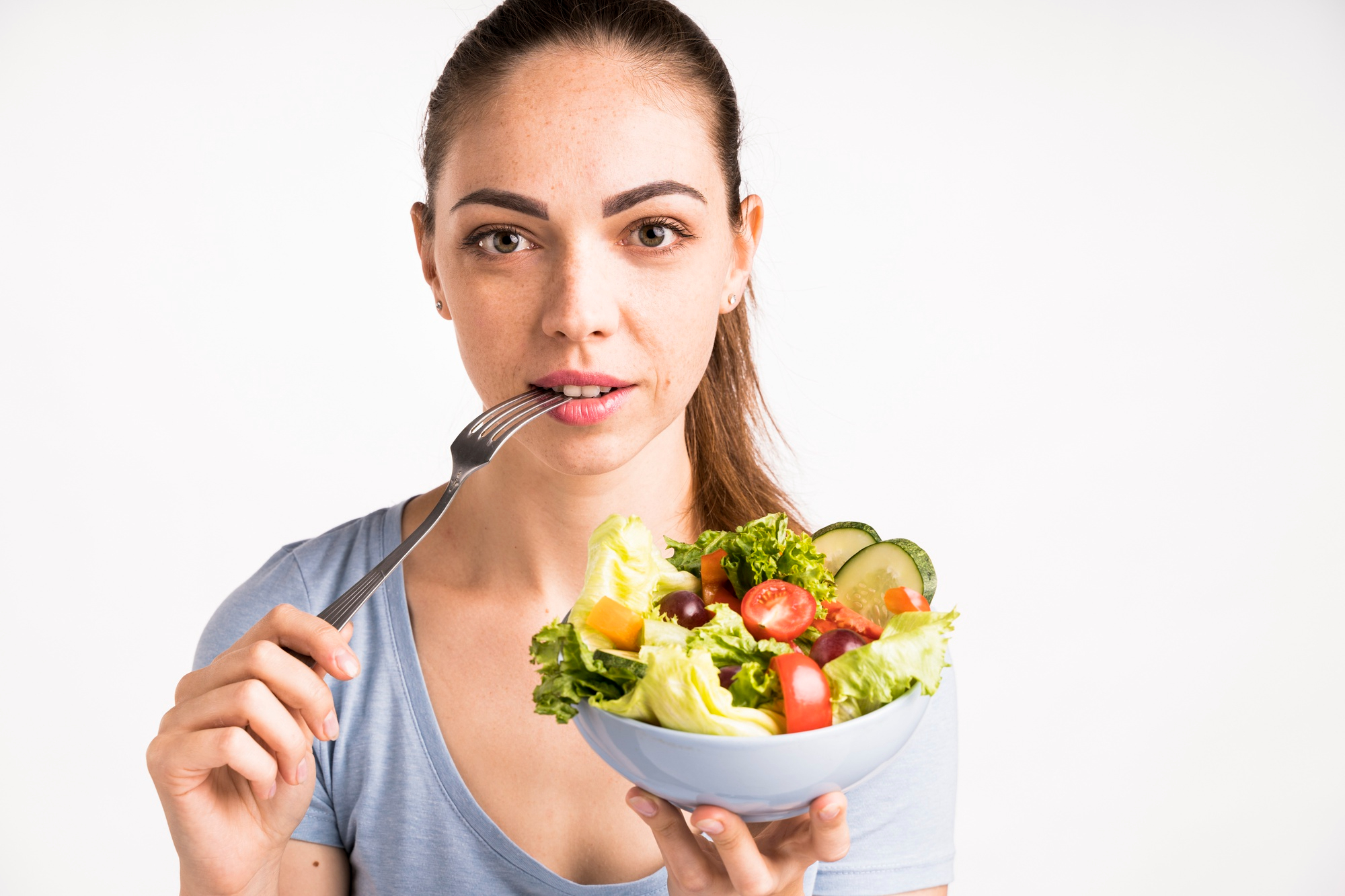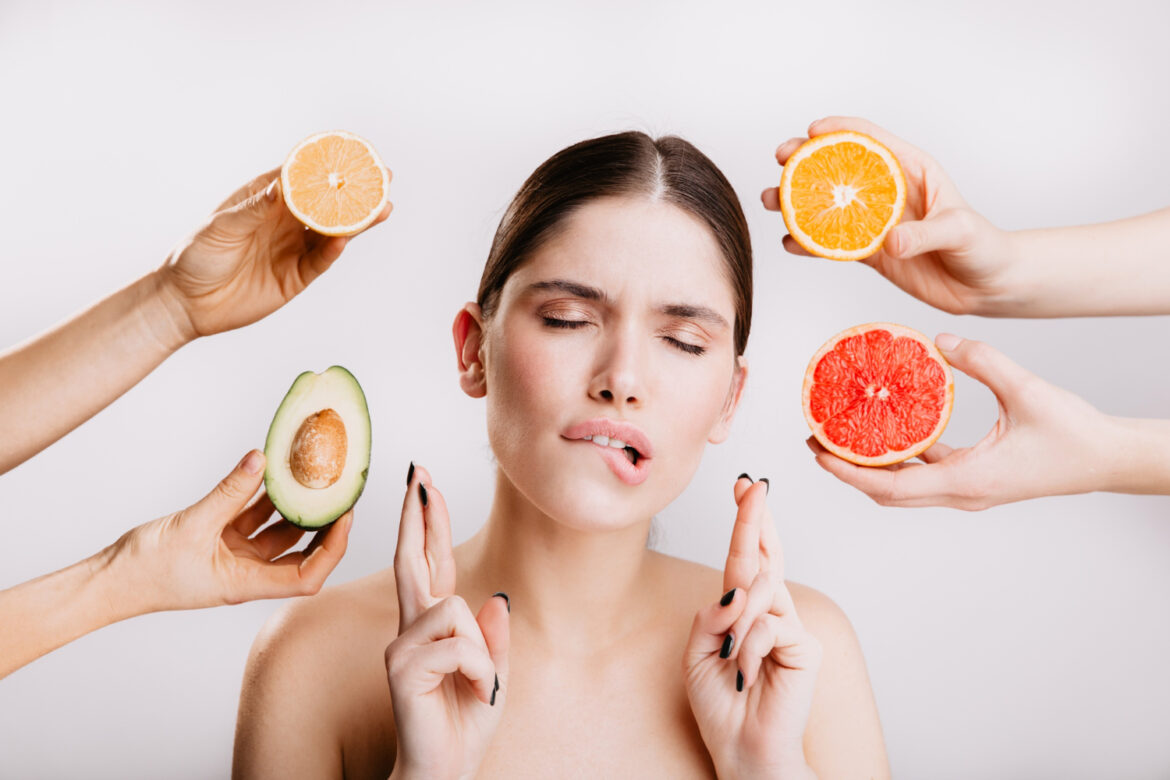Many people struggle with acne and wonder if their diet might be the cause. While genetics, hormones, and skincare routines play a role in acne, what you eat can also impact your skin. In this guide, we’ll explore Does your diet affect acne and spots and how different foods can affect acne and spots, what to avoid, and which foods might help improve your skin.
Table of Contents
ToggleUnderstanding Acne and How It Develops
What is Acne?
Acne is a skin condition that occurs when hair follicles become clogged with oil and dead skin cells. This can lead to pimples, blackheads, whiteheads, and in some cases, cysts.
How Acne Forms
When oil (sebum) and dead skin cells clog your pores, bacteria can grow, leading to inflammation and spots. Factors like hormones, stress, and diet can increase oil production and clog pores.
To learn more about acne, visit the American Academy of Dermatology.
The Role of Diet in Acne
Why Diet Matters for Your Skin
Your skin reflects your internal health. Eating a balanced diet can help regulate hormones, reduce inflammation, and maintain a healthy gut—all of which can influence acne.
Also Read: 5 Reasons Your Skincare Stopped Working and 5 Alternatives to Try
Does Research Support Diet’s Role in Acne?
Research suggests that high-sugar foods and dairy may worsen acne, while foods rich in vitamins and minerals can support skin health. Studies are ongoing, but many dermatologists agree that diet plays a role in skin conditions.
For an overview of research on diet and acne, check out Harvard Health.
Foods That May Worsen Acne
Certain foods are more likely to trigger or worsen acne. Here’s a breakdown of common culprits:

1. Sugary Foods and Drinks
- Examples: Candy, sodas, fruit juices, and pastries.
- Impact on Acne: High sugar levels spike insulin, which can increase oil production and clog pores.
- Alternatives: Opt for natural sweeteners like honey or stevia, or satisfy your sweet tooth with fruit.
For more on how sugar affects acne, visit Healthline’s article on foods that cause acne.
2. Dairy Products
- Examples: Milk, cheese, ice cream, and yogurt.
- Impact on Acne: Dairy contains hormones that may trigger breakouts, especially in those prone to acne.
- Alternatives: Try almond, coconut, or oat milk as a substitute.
You can read more about dairy and acne in this article by WebMD.
3. Fast Food and Fried Foods
- Examples: Burgers, French fries, chips, and fried chicken.
- Impact on Acne: High levels of unhealthy fats and refined carbs can increase inflammation and acne.
- Alternatives: Choose baked, grilled, or steamed options instead of fried foods.
Learn more about the impact of fast food on acne from Medical News Today.
4. Refined Carbohydrates
- Examples: White bread, white rice, pasta, and cereals.
- Impact on Acne: Foods with a high glycemic index can lead to blood sugar spikes, increasing sebum production.
- Alternatives: Swap for whole grains like quinoa, brown rice, or whole-wheat bread.
For more about glycemic index and acne, you can visit Verywell Health.
Foods That May Help Prevent Acne
Incorporating certain foods into your diet can support your skin’s health and help reduce acne.

1. Fruits and Vegetables
- Examples: Spinach, kale, carrots, and berries.
- Benefits: Packed with antioxidants, vitamins, and minerals, these can reduce inflammation and promote clearer skin.
- Tip: Aim for a colorful variety to get a range of nutrients.
Explore the benefits of fruits and vegetables on skin health at EatingWell.
2. Omega-3 Fatty Acids
- Examples: Salmon, chia seeds, flaxseeds, and walnuts.
- Benefits: Omega-3s are anti-inflammatory and can help reduce acne.
- Tip: Include fish in your diet twice a week or sprinkle chia seeds on yogurt or salads.
For more on omega-3s and acne, read Healthline’s article on omega-3s and skin health.
3. Probiotics
- Examples: Sauerkraut, kimchi, kombucha, and non-dairy yogurt.
- Benefits: Probiotics support gut health, which can reduce inflammation and benefit skin.
- Tip: Try adding a serving of probiotic-rich food daily for better gut health.
Visit Verywell Health for more on probiotics and their benefits.
4. Green Tea
- Benefits: Contains antioxidants that can reduce inflammation and sebum production.
- How to Enjoy: Drink a cup of green tea daily or look for skincare products that contain green tea extracts.
Learn about the benefits of green tea for acne at WebMD.
Additional Tips for Clearer Skin
1. Stay Hydrated
Drinking plenty of water helps flush out toxins and keeps your skin hydrated. Aim for at least 8 glasses a day to support healthy skin.
Also Read: Best Skincare Routine for Dehydrated Skin
2. Eat a Balanced Diet
A balanced diet with plenty of fruits, vegetables, lean proteins, and healthy fats can improve your overall skin health.
3. Limit Alcohol and Caffeine
Both can dehydrate the skin and potentially worsen acne. Try to limit your intake and opt for water or herbal teas.
For more skincare tips related to hydration, check out SkinCancer.org.
Supplements That May Help with Acne
Certain supplements can support your skin health and help reduce acne. However, consult with a healthcare provider before starting any new supplement.
Also Read: What is Waterless Skincare? A Complete Guide
1. Zinc
- Benefits: Known for reducing inflammation, zinc can also help reduce acne.
- Sources: You can get zinc from foods like pumpkin seeds, chickpeas, and supplements.
Read more about zinc and acne at Medical News Today.
2. Vitamin A
- Benefits: Helps with skin cell turnover and reduces clogged pores.
- Sources: Found in sweet potatoes, carrots, and available as a supplement.
Visit Healthline for more about how vitamin A can impact acne.
3. Vitamin E
- Benefits: An antioxidant that protects the skin from damage.
- Sources: Almonds, spinach, and available in supplement form.
For more on vitamin E’s benefits, read WebMD.
Lifestyle Changes for Acne Prevention
1. Regular Exercise
Exercise improves blood flow and reduces stress, both of which can support skin health. Aim for at least 30 minutes of physical activity most days.
2. Get Enough Sleep
Sleep is essential for skin repair and stress reduction. Aim for 7-8 hours of quality sleep each night.
3. Reduce Stress
High stress levels can increase inflammation and worsen acne. Consider mindfulness practices like yoga or meditation to keep stress in check.
For more on managing stress and its impact on acne, explore MindBodyGreen.
4. Follow a Gentle Skincare Routine
Avoid harsh scrubs and wash your face twice a day with a mild cleanser to prevent irritation and keep pores clear.
Visit Allure for tips on caring for acne-prone skin.
Conclusion: Does Your Diet Affect Acne?
Yes, your diet can have a significant impact on your skin. By avoiding certain foods and incorporating nutrient-rich options, you can help manage acne and promote healthier skin. Remember, everyone’s skin is different, so it may take some time to find what works best for you. Consult with a healthcare provider for personalized advice, and enjoy the journey to clearer skin!
For further guidance on diet and skincare, check out Acne.org for a supportive community and expert advice.
By taking a holistic approach that includes diet, lifestyle, and skincare, you can make a positive impact on your skin’s health. Happy journey to clearer skin!
FAQ: Does Your Diet Affect Acne and Spots?
1. Can eating sugary foods cause acne?
Yes, sugary foods can contribute to acne. When you eat foods high in sugar, your blood sugar levels spike, causing your body to release more insulin. Higher insulin levels can increase oil production in your skin, leading to clogged pores and more acne. Sugar can also cause inflammation, which may worsen acne. Reducing your intake of sugary foods like candies, sodas, and pastries can help minimize breakouts.
2. Is there a connection between dairy and acne?
There is evidence suggesting that dairy products may contribute to acne, especially in individuals prone to breakouts. Dairy can influence hormone levels in the body, such as insulin and insulin-like growth factor (IGF-1), which can lead to increased oil production and acne. Milk, in particular, has been linked to acne, possibly due to its hormone content. If you suspect dairy is affecting your skin, consider trying dairy-free alternatives and see if your skin improves.
3. Can fast food make acne worse?
Fast food, which often contains high levels of unhealthy fats, refined carbs, and additives, may contribute to acne. Foods like fries, burgers, and fried chicken can increase inflammation and may disrupt hormone levels, leading to more oil production and clogged pores. A diet high in processed foods can also impact gut health, which may worsen acne. Opting for whole, unprocessed foods can benefit your skin and overall health.
4. How does hydration affect acne?
Staying hydrated is essential for healthy skin. While drinking water alone won’t cure acne, it helps flush out toxins, keeps your skin hydrated, and supports overall body functions. Dehydrated skin can produce more oil to compensate for dryness, which may lead to clogged pores. Aim to drink at least 8 glasses of water a day to support your skin’s health and help reduce acne.
5. Are high glycemic index foods bad for acne?
Yes, high glycemic index (GI) foods, such as white bread, pasta, and sugary snacks, can lead to blood sugar spikes, which may increase insulin levels and oil production. This can contribute to the development of acne. Low-GI foods like whole grains, legumes, and most vegetables are digested more slowly, helping to maintain steady blood sugar levels and potentially reducing acne.
6. What are some foods that might help reduce acne?
Foods rich in antioxidants, omega-3 fatty acids, and vitamins A and E can support skin health and reduce acne. For example, leafy greens, berries, and nuts are packed with antioxidants that help fight inflammation. Omega-3-rich foods like salmon and flaxseeds can reduce inflammation and improve skin texture. Vitamin A from carrots and sweet potatoes can support skin cell turnover, while vitamin E from almonds and spinach can protect skin from damage.
7. Can probiotics improve acne?
Probiotics can help improve acne by promoting a healthy gut, which plays a crucial role in skin health. A balanced gut microbiome can reduce inflammation and improve your body’s immune response, potentially reducing acne. Probiotic-rich foods like non-dairy yogurt, sauerkraut, and kimchi can support gut health. You can also consider taking a probiotic supplement for additional support.
8. Does chocolate cause acne?
The link between chocolate and acne is still debated. However, milk chocolate, which contains sugar and dairy, may contribute to acne in some people. Dark chocolate with higher cocoa content and less sugar may have less impact on acne. If you suspect that chocolate affects your skin, try switching to dark chocolate or avoiding it altogether to see if there’s any improvement.
9. Is the “clean eating” trend effective for reducing acne?
Clean eating focuses on consuming whole, minimally processed foods, which can positively impact acne. By avoiding processed foods, refined sugars, and unhealthy fats, you may reduce inflammation and support clearer skin. Clean eating also emphasizes fruits, vegetables, lean proteins, and healthy fats, all of which provide essential nutrients that can benefit your skin and overall health.
10. How long does it take to see changes in acne after changing my diet?
Dietary changes can take time to impact your skin. It may take several weeks to a few months before you notice improvements in acne after adjusting your diet. Skin cell turnover typically takes about 28 days, so patience is key. Keep a food diary to track what you eat and any changes in your skin. Consulting with a dermatologist or nutritionist can also help you develop a diet plan that supports clearer skin.
